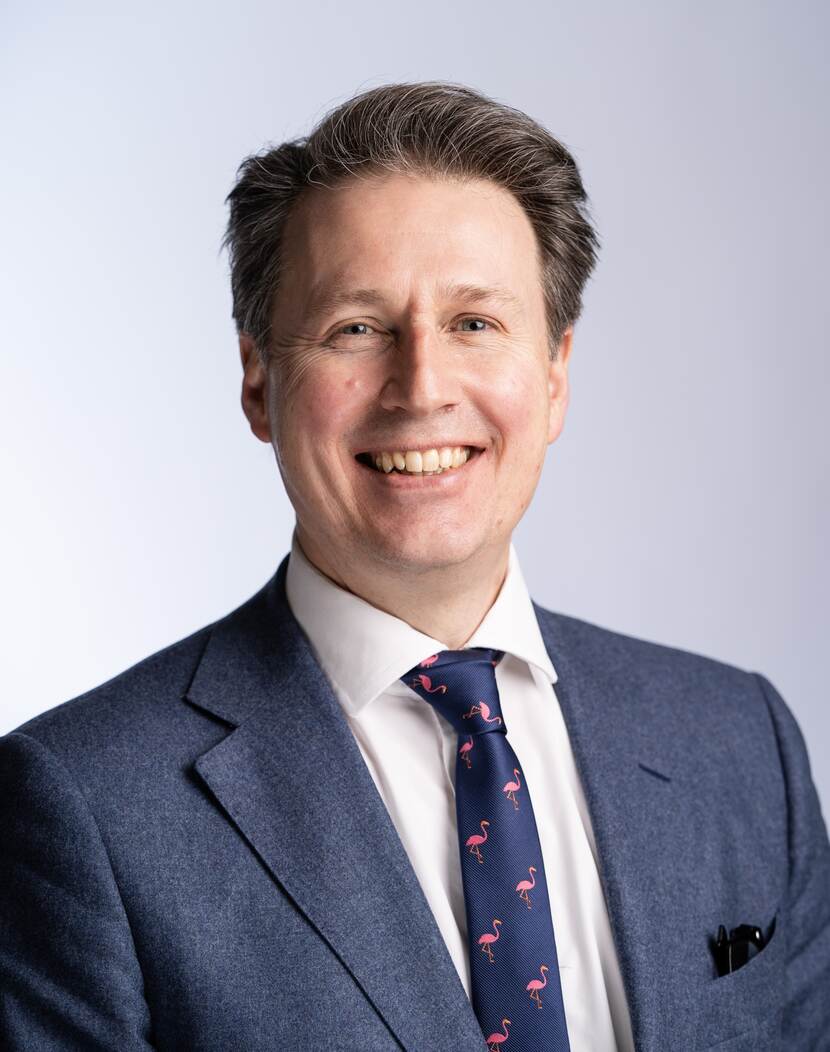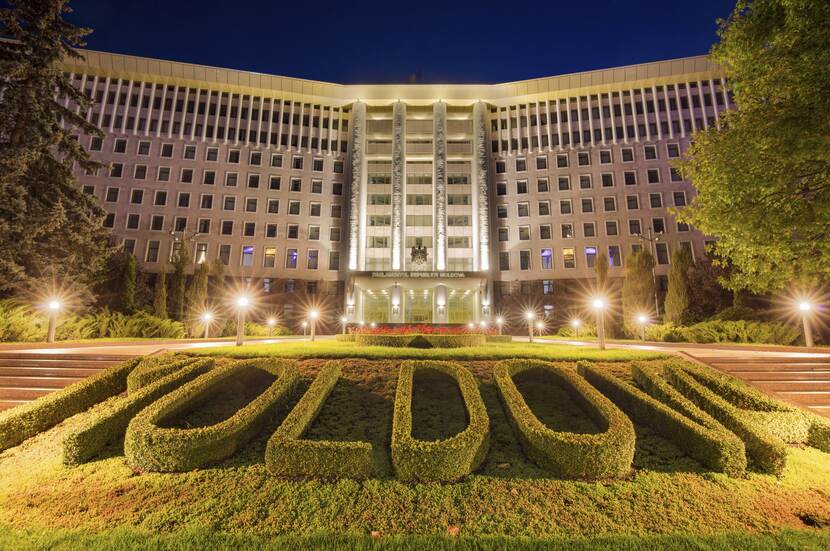New Dutch embassy shows Dutch support for Moldova’s future EU membership
Today the Netherlands is opening a new embassy in Chișinău, the capital of the Eastern European country of Moldova. Why has the Netherlands decided to open an embassy here in particular? And what does a step like this involve? ‘Stability in Moldova is good for the stability of Europe as a whole,’ says the new Dutch ambassador in Chișinău, Fred Duijn.
Enlarge image
A small strip of land in Eastern Europe wedged between Romania and Ukraine, Moldova was once considered part of the ‘Eastern bloc’ in the time of the Cold War. Moldova has been an independent country since 1991. Last year, just one week after Russia’s invasion of Ukraine, Moldova’s pro-European government applied for EU membership.
Today the new Dutch embassy is being officially opened by Minister of Foreign Affairs Wopke Hoekstra. The decision to open an embassy was prompted not only by Moldova’s status as an EU candidate country, says the new Dutch ambassador, Fred Duijn, but also by the need to strengthen the rule of law and the economy in this vulnerable country. ‘That benefits not only the stability of Moldova, but ultimately that of the whole continent.’
Enlarge image

Active contacts
The Dutch embassy will officially open on 19 April, but Mr Duijn emphasises that the Netherlands has had active, productive contacts and partnerships in Moldova for 30 years. ‘Through churches, civil society organisations and a variety of companies. And the Netherlands already had a presence in Chișinău, in the form of a chargé d’affaires ad interim, who served as a kind of representative of the ambassador in Romania.’
Floris van Eijk was the chargé d’affaires ad interim for the Netherlands in Moldova. He has lived and worked in the capital city of Chișinău since 2019. ‘Since 2021 Moldova has had a pro-European government that wants to carry out real reforms. The country wants to take major steps, like building an independent judiciary and fighting corruption. These are key conditions for development.’
Support for EU membership
Opening a ‘fully fledged’ embassy is therefore a sign of support for Moldova’s development and pro-European ambitions. ‘The Netherlands supports Moldova’s candidacy for EU membership,’ says Ambassador Duijn. ‘It will take some time before Moldova is actually a member though. For that it will need to meet all the conditions that Brussels has set for membership.’
In order for Moldova to join the EU, Mr Duijn points out, a lot needs to be done in the country. ‘Our job as an embassy is to report on and offer advice about the progress being made. And we’re providing Moldova with specific support. This requires more people. Before, there were only three of us here in Chișinău. Now there are five, and soon the embassy will be staffed with eight people. There’s a lot of work to do.’
Judicial reform
The Netherlands supports the country in various areas, such as judicial reform and strengthening the rule of law. ‘We’re working with Moldova to screen and train judges. Our embassy will be monitoring the country’s progress and reporting back to The Hague.’
Moldova’s economic development is another focus of Dutch policy. The country is one of the poorest in Europe. Many people cannot read well, and life expectancy is relatively low. ‘The Netherlands hopes to contribute to Moldova’s economic development,’ Ambassador Duijn says. We have a lot of expertise, for example in the area of agriculture. I hope we can bring together companies from the Netherlands and Moldova to create opportunities that benefit both sides.’
‘People here have a strong sense that Ukraine is also defending Moldova’s freedom and democracy. Fear of the Russians has declined since the invasion, but it certainly hasn’t disappeared.’
Invasion of Ukraine
The war in Ukraine continues to have an enormous impact in the small country of Moldova, which is sandwiched between Ukraine and Romania. Trade to and from Ukraine and Russia came to an abrupt stop after the invasion. The price of energy and raw materials increased sharply, causing an economic crisis. Moldova took in 600,000 Ukrainian refugees, more than most other countries in relative terms. It also had deep concerns about its own security.
‘The feeling last year right after the invasion was: before long, the Russians will be standing on our border,’ says Mr van Eijk, who served as chargé d’affaires ad interim until 1 April. ‘Many people here have family and friends in Ukraine. People are only too aware of the military violence and human rights violations committed by Russia. Fortunately, the Ukrainians are putting up stiff resistance to the Russian army. People here have a strong sense that Ukraine is also defending Moldova’s freedom and democracy. The fear has declined slightly since last year, but it certainly hasn’t disappeared.’
Destabilisation
Moldova has also been the target of Russian attempts at destabilisation. Russia is organising and funding anti-government demonstrations, hoping to undermine public support for the country’s EU course. There have also been false flag operations, including in the breakaway region of Transnistria, which is supported by Russia. Russia is also actively spreading disinformation in a bid to influence the population.
Despite the major challenges, the Moldovan government is continuing to carry out large-scale reforms to the economy and the justice system. ‘Moldova has opted for Europe,’ remarks Duijn, ‘and to that end it’s been given EU candidate status. As ambassador, I’m working to help improve Moldova’s energy security and cyber resilience, and of course, to strengthen the rule of law.’
New signs
After today’s festive opening ceremony, the embassy office in Chișinău will be an official embassy. ‘We’ve only just put up the new signs,’ says Mr Duijn. Five days after his arrival, the new Dutch ambassador offered his ‘letters of credence’ to the president of Moldova, Maia Sandu. Letters of credence are a ceremonial document, signed by King Willem-Alexander, which introduce a new ambassador to the government of the country to which he or she has been assigned.
What’s the biggest challenge for Ambassador Duijn? ‘As a small team, we need to be careful about where we focus our energy. In the years ahead my priority will be ensuring that the Netherlands’ support for Moldova is concrete and impactful. The embassy team will concentrate on areas where the Netherlands can really make a difference.’
Originally published at https://www.government.nl/latest/news/2023/04/19/new-dutch-embassy-in-moldova



